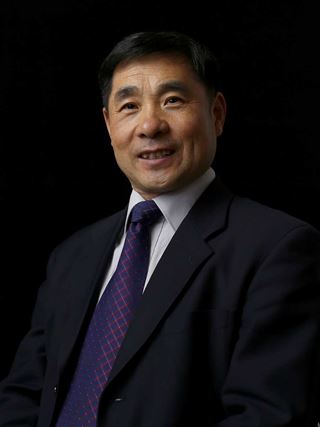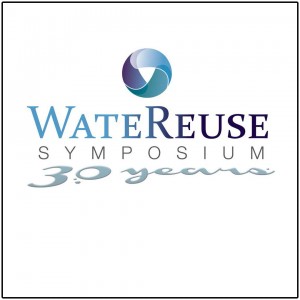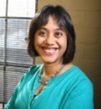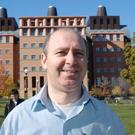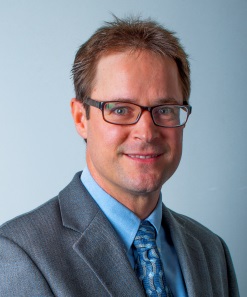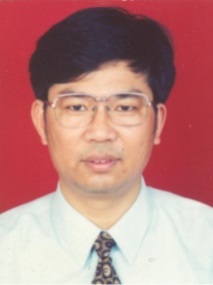ORCID provides an identifier for individuals to use with their name as they engage in research, scholarship and innovation activities, ensuring authors gain full credit for their work.
Today, we signed their open letter, along with ACS Publications, committing to unambiguous identification of all authors that publish in our journals.
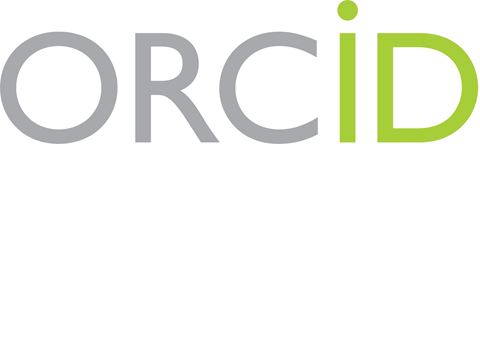
The commitment by these two global chemistry publishers to undertake new workflow integration with technology infrastructure provided by ORCID, a not-for-profit organization that provides unique identifiers for researchers and scholars, will enable both societies to provide unambiguous designation of author names within chemistry and across the broader sciences. This partnership with ORCID will resolve ambiguity in researcher identification caused by name changes, cultural differences in name presentation, and the inconsistent use of name abbreviations that is too often a source of confusion for those who must rely on the published scientific record.
By becoming signatories to the ORCID Open Letter, these two major chemical societies are voicing their intent to collect ORCID iDs for all submitting authors through use of the ORCID API, and to display such identifiers in the articles published in their respective society journals. The integration of such activities within the publishers’ workflows means authors will benefit from automated linkages between their ORCID record and unique identifiers embedded within their published research articles, ensuring their contributions are appropriately recognized and credited.
During the publishing process, ACS and the Royal Society of Chemistry will automatically deposit publications to Crossref, which in turn will coordinate with ORCID to link and update the publishing activity populated to authors’ respective ORCID profiles, thus attributing each published work to the correct researcher. Existing holders of an ORCID iD will encounter a one-time prompt to grant permission for the linkage. If authors do not have an ORCID iD, they can easily enroll without navigating away from the publishers’ manuscript submission site. If users wish to revoke integrated ORCID profile access at any time, they can elect to do so through their ACS, Royal Society of Chemistry or ORCID accounts.
Both ACS Publications and the Royal Society of Chemistry understand the importance of attributing accurately the scholarly contributions of research scientists in the context of their other professional activities. “ACS has supported ORCID since the outset of the initiative,” says Sarah Tegen, Ph.D., Vice President of Global Editorial & Author Services at ACS Publications. “We are pleased now to align with the Royal Society of Chemistry in this endeavor, as both societies underscore our willingness not only to encourage and assist our respective authors in establishing their unique ORCID profiles, but also to help tackle the broader challenge of researcher name disambiguation in the scholarly literature. With the integration of author ORCID iDs in our publishing workflows, we will ensure that researchers receive proper credit for their accomplishments.”
Emma Wilson, Ph.D., Director of Publishing at the Royal Society of Chemistry adds, “We have been a supporter of ORCID since 2013, recognizing the benefits it brings to researchers; ORCID can and will make a huge difference to our authors’ ability to gain full credit for their work. ORCID will also help researchers meet the requirements of their research funders — for example, a number of funders have already announced that all grant applicants must now include a researcher’s ORCID iD. A unified system that integrates and links research-related information with accurate and timely linkage to the publishing output of authors has the potential to simplify and speed up their grant applications — something we know is important to researchers.”
“The ACS and the Royal Society of Chemistry have been long-standing supporters of ORCID,” says Laurel Haak, Ph.D., Executive Director, ORCID. “We are pleased to see ORCID integration into ACS and Royal Society of Chemistry Publications systems. This will be a substantial benefit to researchers in the chemistry community, both in improving search and discovery of research articles, and for attribution and recognition of researchers’ contributions to the discipline.”
About the American Chemical Society and ACS Publications
The American Chemical Society is a nonprofit organization chartered by the U.S. Congress. With nearly 157,000 members, ACS is the world’s largest scientific society and a global leader in providing access to chemistry-related research through its multiple databases, peer-reviewed journals and scientific conferences. Its main offices are in Washington, D.C., and Columbus, Ohio.
ACS Publications, a division of the American Chemical Society, is a nonprofit scholarly publisher of 50 peer-reviewed journals and a range of eBooks at the interface of chemistry and allied sciences, including physics and biology. ACS Publications journals are among the most-cited, most-trusted and most-read within the scientific literature. Respected for their editorial rigor, ACS journals offer high-quality service to authors and readers, including rapid time to publication, a range of channels for researchers to access ACS Publications’ award-winning web and mobile delivery platforms, and a comprehensive program of open access publishing options for authors and their funders. ACS Publications also publishes Chemical & Engineering News — the Society’s newsmagazine covering science and technology, business and industry, government and policy, education and employment aspects of the chemistry field.
About the Royal Society of Chemistry
The Royal Society of Chemistry is the world’s leading chemistry community, advancing excellence in the chemical sciences. With over 50,000 members and a knowledge business that spans the globe, we are the U.K.’s professional body for chemical scientists; a not-for-profit organisation with 175 years of history and an international vision for the future. We promote, support and celebrate chemistry. We work to shape the future of the chemical sciences — for the benefit of science and humanity.
About ORCID
ORCID’s vision is a world where all who participate in research, scholarship and innovation are uniquely identified and connected to their contributions across disciplines, borders and time. ORCID provides an identifier for individuals to use with their name as they engage in research, scholarship and innovation activities. It provides open tools that enable transparent and trustworthy connections between researchers, their contributions and affiliations. The organization provides this service to help people find information and to simplify reporting and analysis. ORCID is a not-for-profit organization, sustained by fees from member organizations. Its work is open, transparent and non-proprietary. The organization strives to be a trusted component of research infrastructure with the goal of providing clarity in the breadth of research contributions and the people who make them.











